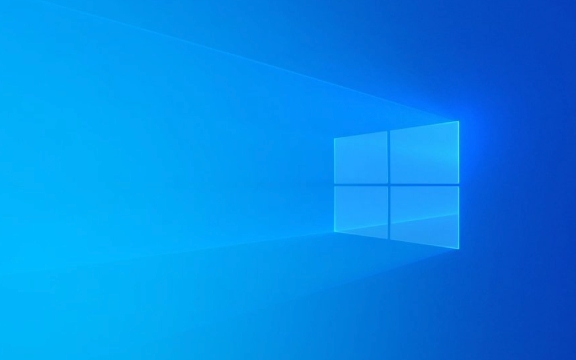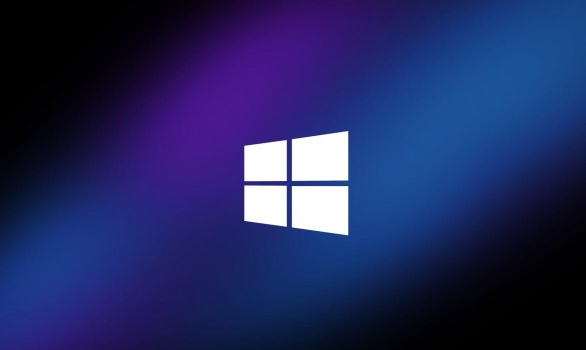To analyze a memory.dmp file, use WinDbg with symbols and run !analyze -v to identify the root cause of system crashes. 1. Install WinDbg via Windows SDK or Microsoft Store. 2. Open the memory.dmp file in WinDbg. 3. Set symbol path with .sympath and run .reload /f to download symbols. 4. Execute !analyze -v for detailed crash info, and use commands like kb, !thread, !process, lm, and !pool for deeper insights. 5. Interpret common bug checks like IRQL_NOT_LESS_OR_EQUAL or MEMORY_MANAGEMENT, and check for faulty drivers in the output. 6. Optionally use tools like BlueScreenView or WhoCrashed for quicker analysis, but rely on WinDbg for accuracy. Ensure full memory dumps are enabled, compare multiple dumps, update drivers and BIOS, and run hardware tests if needed to resolve recurring issues.

Analyzing a memory.dmp file in Windows can help identify the root cause of system crashes (like BSODs), driver issues, or memory-related problems. These dump files are created when Windows encounters a critical error and can be analyzed using debugging tools. Here’s how to do it properly.

1. Set Up the Debugging Environment
To analyze memory.dmp, you need the Windows Debugger (WinDbg), which is part of the Windows SDK or Windows Driver Kit (WDK).
Steps:
- Download WinDbg via:
- Windows SDK (includes debugging tools)
- Or install WinDbg Preview from the Microsoft Store (simpler for beginners)
- Install it and launch WinDbg (x64) as Administrator.
? Tip: You can also use BlueScreenView (by NirSoft) for a quick overview, but it’s not a replacement for deep analysis.

2. Load the Memory Dump File
Once WinDbg is open:
- Go to File > Start Debugging > Open Crash Dump
- Navigate to your
memory.dmpfile (usually located inC:\Windows\memory.dmp) - Open it
The tool will load the file and show initial output, including the crash type (e.g., BUGCHECK_CODE) and suspected faulty module.

3. Configure Symbol Files (Crucial Step)
Symbols help translate memory addresses into readable function and module names.
In WinDbg, run this command:
.sympath srv*C:\Symbols*https://msdl.microsoft.com/download/symbols
Then reload symbols:
.reload /f
? This tells WinDbg to download Microsoft symbols automatically and cache them in
C:\Symbols. Do this once per session.
4. Run Basic Analysis Commands
After symbols load, use these key commands:
!analyze -v
The most important command. Gives detailed crash analysis: bug check code, arguments, probable cause, and stack trace.Example output:
BUGCHECK_CODE: 1a BUGCHECK_DESCRIPTION: MEMORY_MANAGEMENT PROCESS_NAME: System TRAILING_BYTES_SEARCH: Search complete DRIVER_VERIFIER_DETECTED_VIOLATION
!thread – Shows current thread context
kb – Displays stack backtrace
!process 0 0 – Lists all processes at crash time
lm – Lists loaded modules (drivers)
!pool – Inspects pool memory (useful for pool corruption)
- IRQL_NOT_LESS_OR_EQUAL → Usually a driver accessing paged memory at high IRQL
- PAGE_FAULT_IN_NONPAGED_AREA → Invalid memory access, often bad drivers or hardware
- DRIVER_VERIFIER_DETECTED_VIOLATION → A driver broke rules (often intentional to catch bugs)
- MEMORY_MANAGEMENT (0x1a) → Could be faulty RAM, driver, or page table corruption
- Update or reinstall the driver
- Check for firmware or BIOS updates
- Run hardware diagnostics (especially RAM with
mdsched.exe) - BlueScreenView (NirSoft) – Graphical view of multiple dump files, highlights faulty drivers quickly.
- WhoCrashed – User-friendly tool that automates dump analysis (good for non-experts).
- OSR Online Driver Loader – Helps verify if a suspect driver is signed or known.
- Make sure full memory dumps are enabled (via System Properties > Advanced > Startup and Recovery). By default, Windows may only generate small dumps.
- Multiple dumps? Compare them. If the same driver keeps appearing, it’s likely the culprit.
- Keep your system updated—many crashes are fixed in newer driver or OS versions.
? Focus on the MODULE_NAME, IMAGE_NAME, and STACK_TEXT sections from
!analyze -vto identify faulty drivers or system components.
5. Interpret Common Crash Patterns
Some frequent findings:
If a third-party driver (e.g., nvlddmkm.sys for NVIDIA, rt640x64.sys for Realtek) is implicated:
6. Use Additional Tools (Optional)
?? Be cautious with third-party tools—they may not provide full context like WinDbg.
Final Tips
Basically, use WinDbg with symbols and trust the !analyze -v output. It’s not instant, but it’s the most accurate way to find what really caused the crash.
The above is the detailed content of How to analyze memory.dmp files in Windows. For more information, please follow other related articles on the PHP Chinese website!

Hot AI Tools

Undress AI Tool
Undress images for free

Undresser.AI Undress
AI-powered app for creating realistic nude photos

AI Clothes Remover
Online AI tool for removing clothes from photos.

Clothoff.io
AI clothes remover

Video Face Swap
Swap faces in any video effortlessly with our completely free AI face swap tool!

Hot Article

Hot Tools

Notepad++7.3.1
Easy-to-use and free code editor

SublimeText3 Chinese version
Chinese version, very easy to use

Zend Studio 13.0.1
Powerful PHP integrated development environment

Dreamweaver CS6
Visual web development tools

SublimeText3 Mac version
God-level code editing software (SublimeText3)
 How to Change Font Color on Desktop Icons (Windows 11)
Jul 07, 2025 pm 12:07 PM
How to Change Font Color on Desktop Icons (Windows 11)
Jul 07, 2025 pm 12:07 PM
If you're having trouble reading your desktop icons' text or simply want to personalize your desktop look, you may be looking for a way to change the font color on desktop icons in Windows 11. Unfortunately, Windows 11 doesn't offer an easy built-in
 Fixed Windows 11 Google Chrome not opening
Jul 08, 2025 pm 02:36 PM
Fixed Windows 11 Google Chrome not opening
Jul 08, 2025 pm 02:36 PM
Fixed Windows 11 Google Chrome not opening Google Chrome is the most popular browser right now, but even it sometimes requires help to open on Windows. Then follow the on-screen instructions to complete the process. After completing the above steps, launch Google Chrome again to see if it works properly now. 5. Delete Chrome User Profile If you are still having problems, it may be time to delete Chrome User Profile. This will delete all your personal information, so be sure to back up all relevant data. Typically, you delete the Chrome user profile through the browser itself. But given that you can't open it, here's another way: Turn on Windo
 How to fix second monitor not detected in Windows?
Jul 12, 2025 am 02:27 AM
How to fix second monitor not detected in Windows?
Jul 12, 2025 am 02:27 AM
When Windows cannot detect a second monitor, first check whether the physical connection is normal, including power supply, cable plug-in and interface compatibility, and try to replace the cable or adapter; secondly, update or reinstall the graphics card driver through the Device Manager, and roll back the driver version if necessary; then manually click "Detection" in the display settings to identify the monitor to confirm whether it is correctly identified by the system; finally check whether the monitor input source is switched to the corresponding interface, and confirm whether the graphics card output port connected to the cable is correct. Following the above steps to check in turn, most dual-screen recognition problems can usually be solved.
 Want to Build an Everyday Work Desktop? Get a Mini PC Instead
Jul 08, 2025 am 06:03 AM
Want to Build an Everyday Work Desktop? Get a Mini PC Instead
Jul 08, 2025 am 06:03 AM
Mini PCs have undergone
 Fixed the failure to upload files in Windows Google Chrome
Jul 08, 2025 pm 02:33 PM
Fixed the failure to upload files in Windows Google Chrome
Jul 08, 2025 pm 02:33 PM
Have problems uploading files in Google Chrome? This may be annoying, right? Whether you are attaching documents to emails, sharing images on social media, or submitting important files for work or school, a smooth file upload process is crucial. So, it can be frustrating if your file uploads continue to fail in Chrome on Windows PC. If you're not ready to give up your favorite browser, here are some tips for fixes that can't upload files on Windows Google Chrome 1. Start with Universal Repair Before we learn about any advanced troubleshooting tips, it's best to try some of the basic solutions mentioned below. Troubleshooting Internet connection issues: Internet connection
 How to clear the print queue in Windows?
Jul 11, 2025 am 02:19 AM
How to clear the print queue in Windows?
Jul 11, 2025 am 02:19 AM
When encountering the problem of printing task stuck, clearing the print queue and restarting the PrintSpooler service is an effective solution. First, open the "Device and Printer" interface to find the corresponding printer, right-click the task and select "Cancel" to clear a single task, or click "Cancel all documents" to clear the queue at one time; if the queue is inaccessible, press Win R to enter services.msc to open the service list, find "PrintSpooler" and stop it before starting the service. If necessary, you can manually delete the residual files under the C:\Windows\System32\spool\PRINTERS path to completely solve the problem.
 How to run Command Prompt as an administrator in Windows 10?
Jul 05, 2025 am 02:31 AM
How to run Command Prompt as an administrator in Windows 10?
Jul 05, 2025 am 02:31 AM
To run command prompts as administrator, the most direct way is to search through the Start menu and right-click "Run as administrator"; secondly, use the Win X shortcut menu to select "Command Prompt (Administrator)" or "Windows Terminal (Administrator)"; you can also open the run window through Win R and enter cmd and press Ctrl Shift Enter to force running as administrator; in addition, you can set shortcut properties to achieve automatic running as administrator. All the above methods require administrator permission and confirmation through UAC. Pay attention to security risks during operation.








